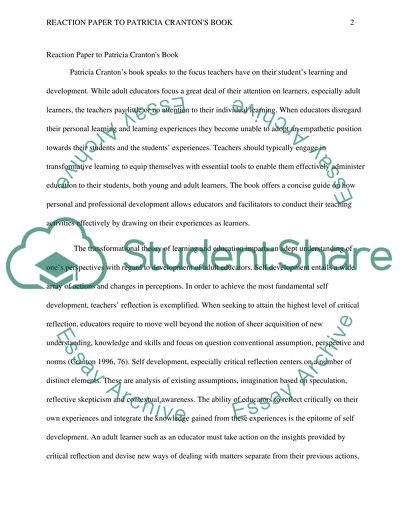Cite this document
(“Reaction Paper to Patricia Cranton's Book: Professional Development as Research”, n.d.)
Reaction Paper to Patricia Cranton's Book: Professional Development as Research. Retrieved from https://studentshare.org/religion-and-theology/1443971-reaction-paper-to-patricia-cranton-s-book
Reaction Paper to Patricia Cranton's Book: Professional Development as Research. Retrieved from https://studentshare.org/religion-and-theology/1443971-reaction-paper-to-patricia-cranton-s-book
(Reaction Paper to Patricia Cranton'S Book: Professional Development As Research)
Reaction Paper to Patricia Cranton'S Book: Professional Development As Research. https://studentshare.org/religion-and-theology/1443971-reaction-paper-to-patricia-cranton-s-book.
Reaction Paper to Patricia Cranton'S Book: Professional Development As Research. https://studentshare.org/religion-and-theology/1443971-reaction-paper-to-patricia-cranton-s-book.
“Reaction Paper to Patricia Cranton'S Book: Professional Development As Research”, n.d. https://studentshare.org/religion-and-theology/1443971-reaction-paper-to-patricia-cranton-s-book.


